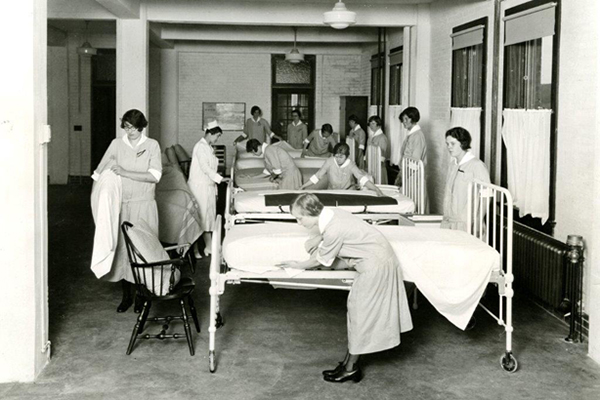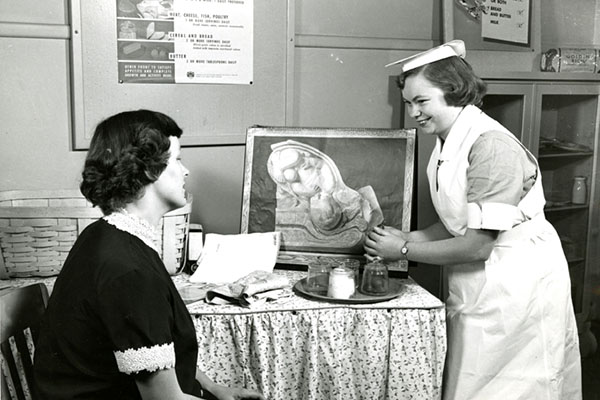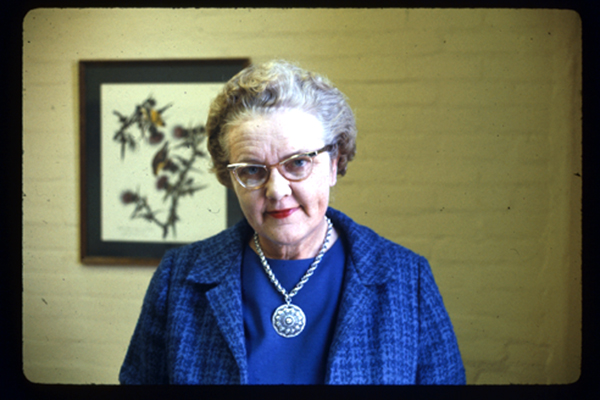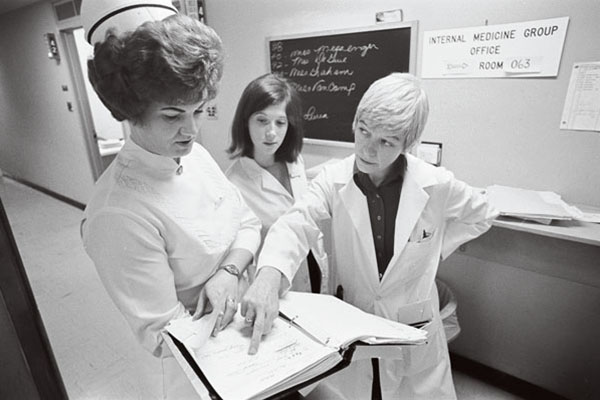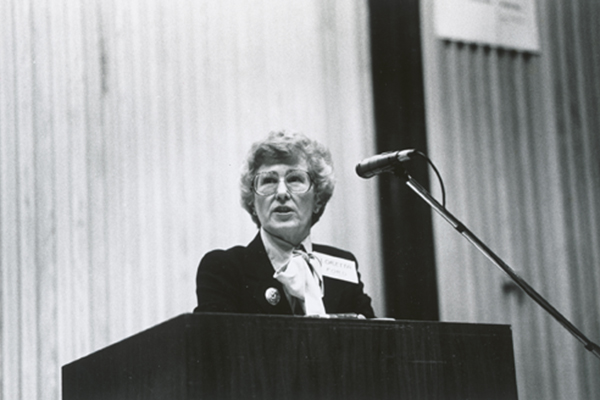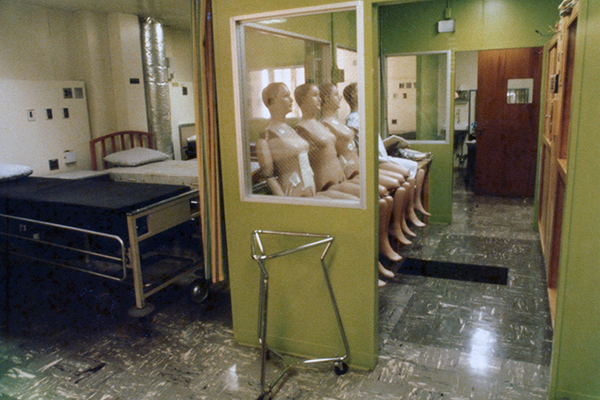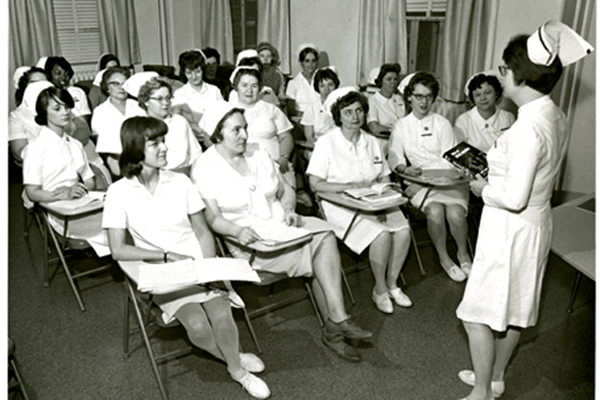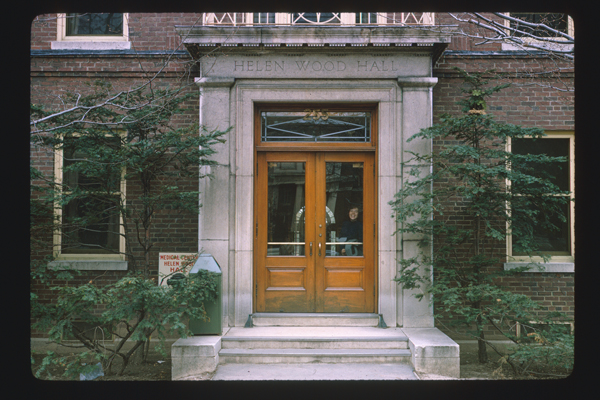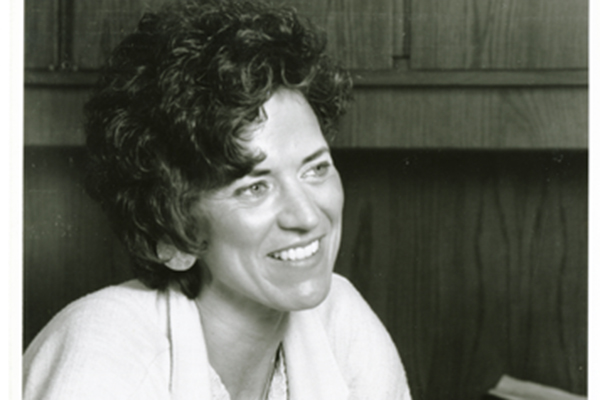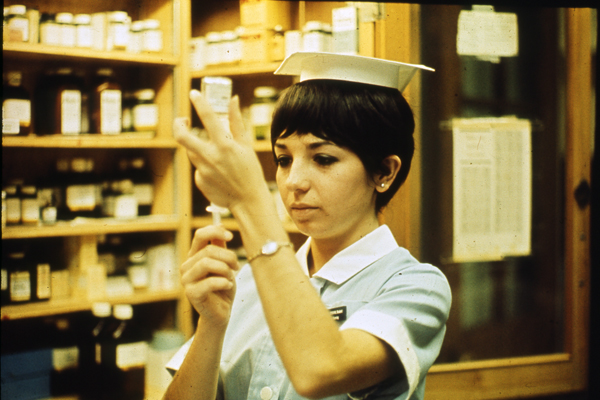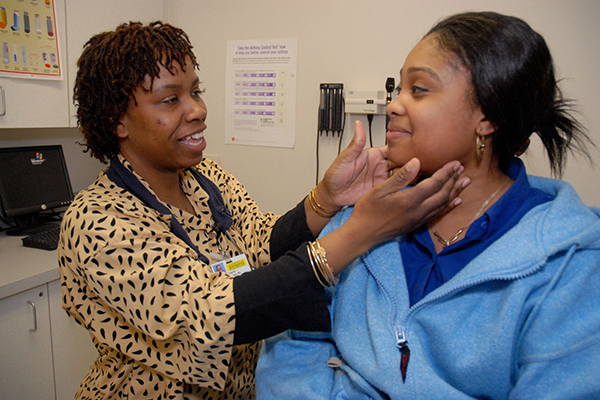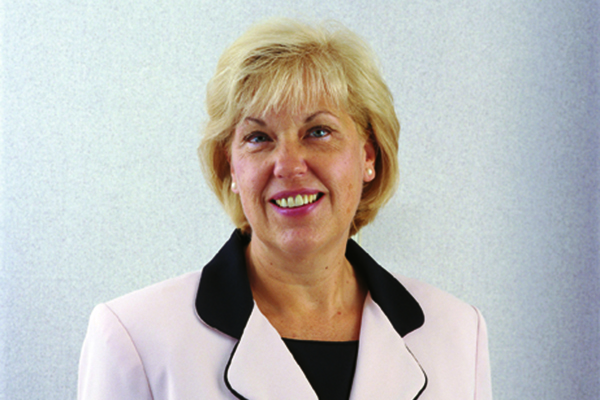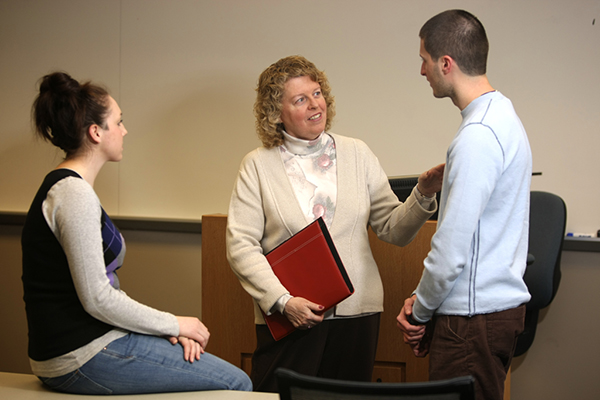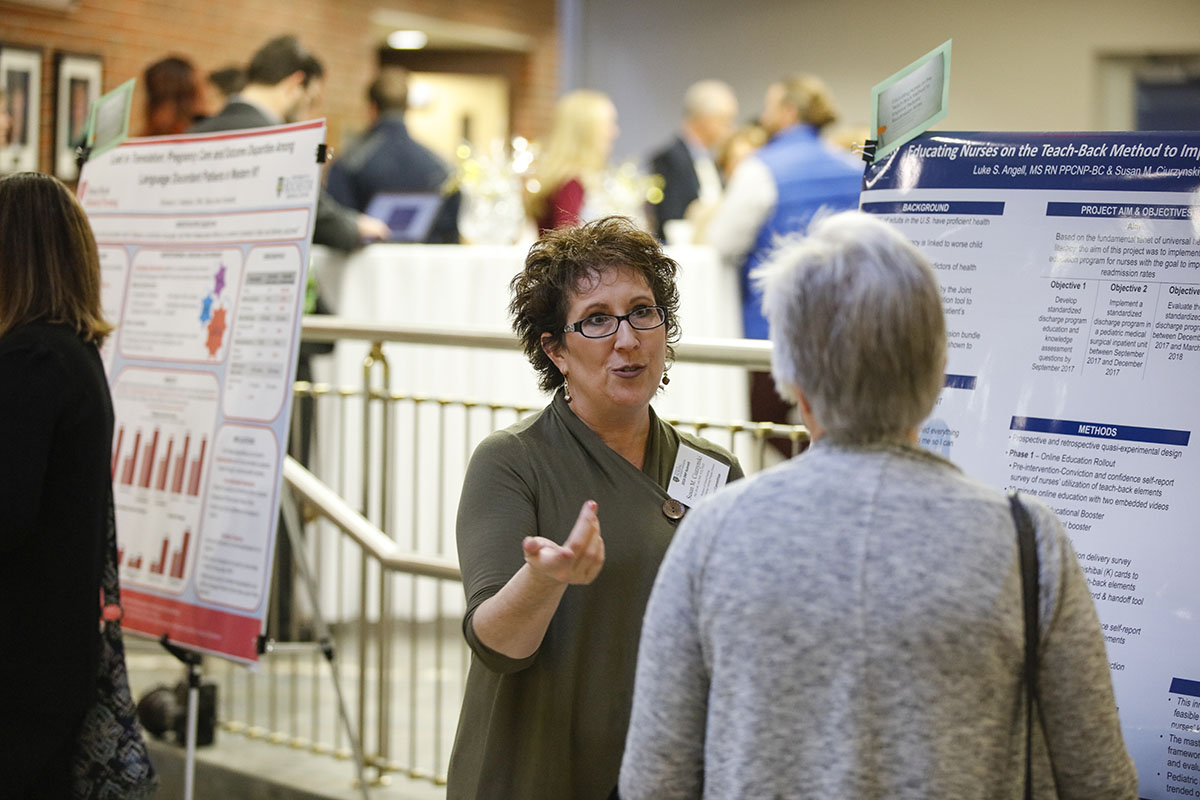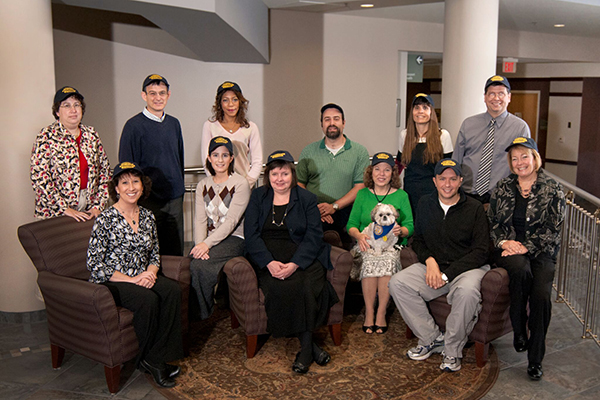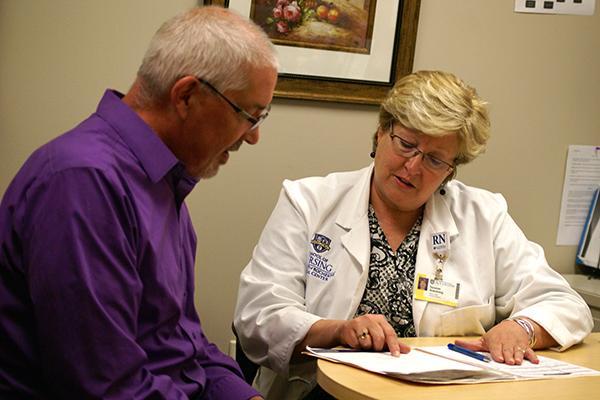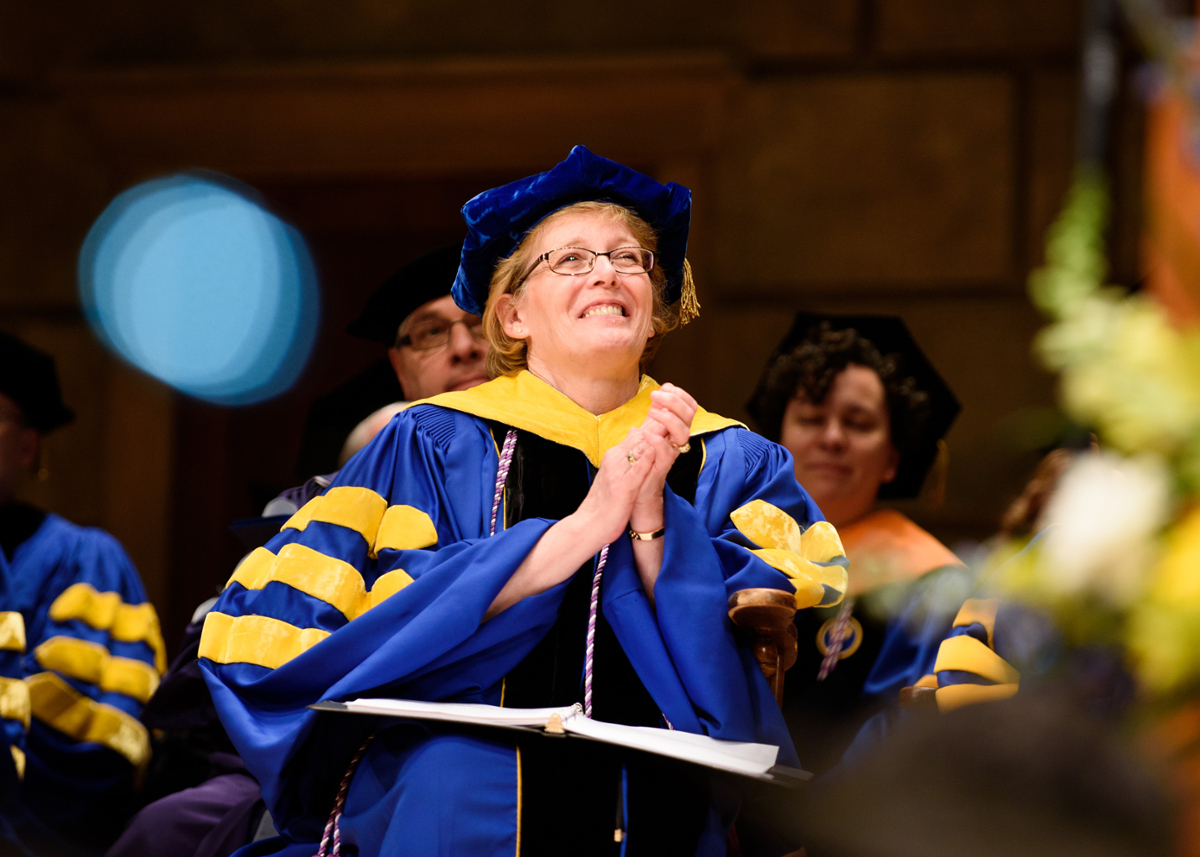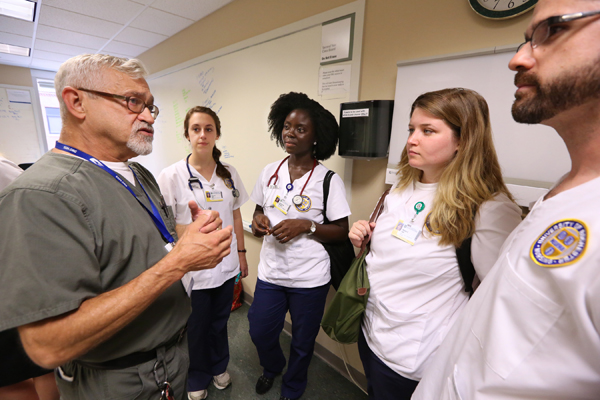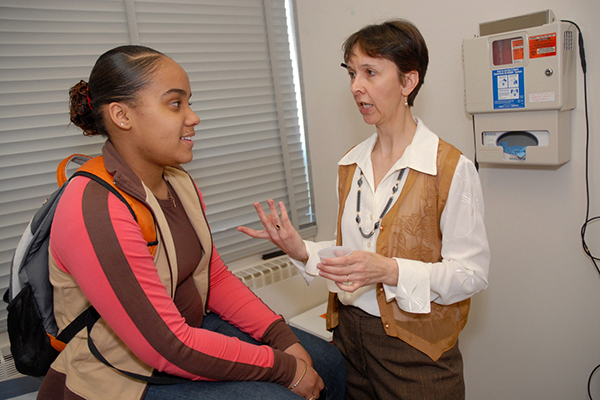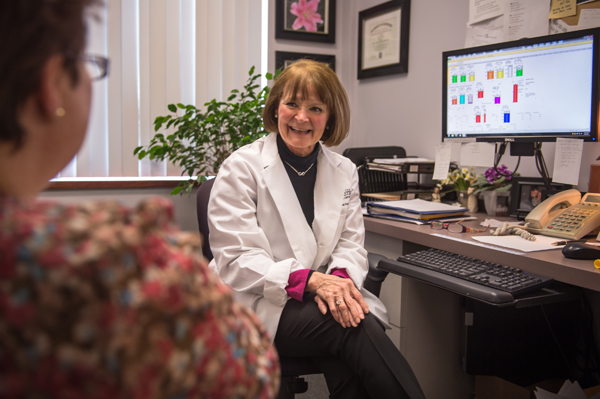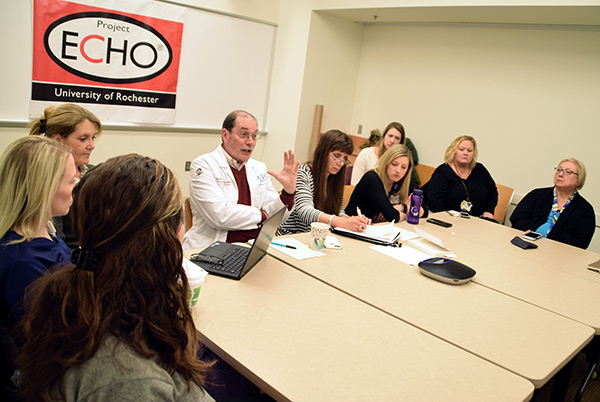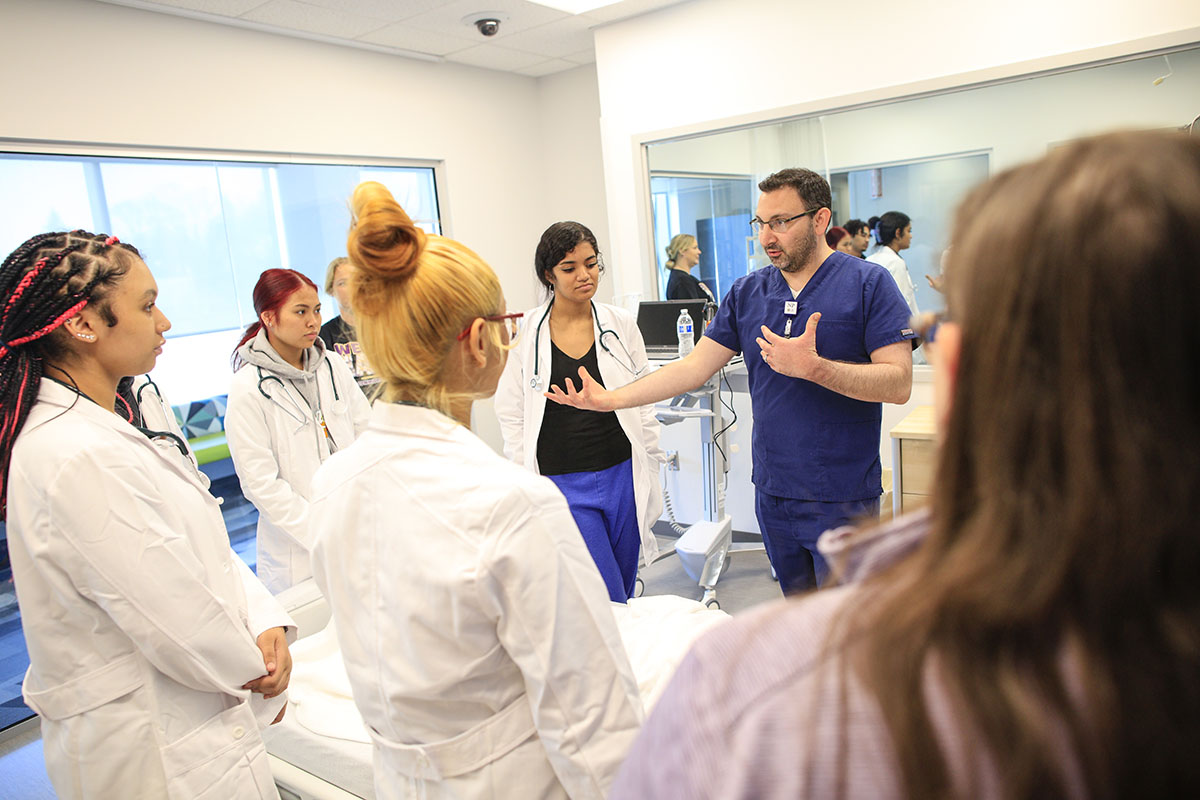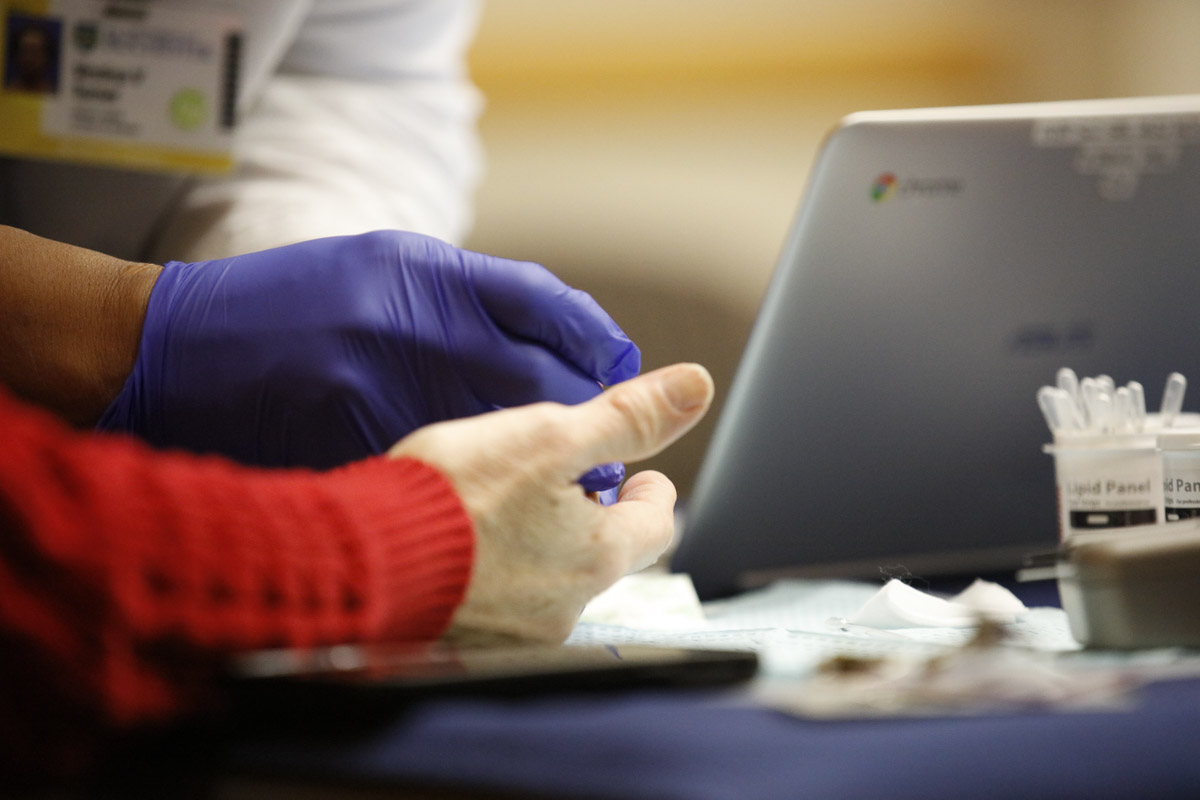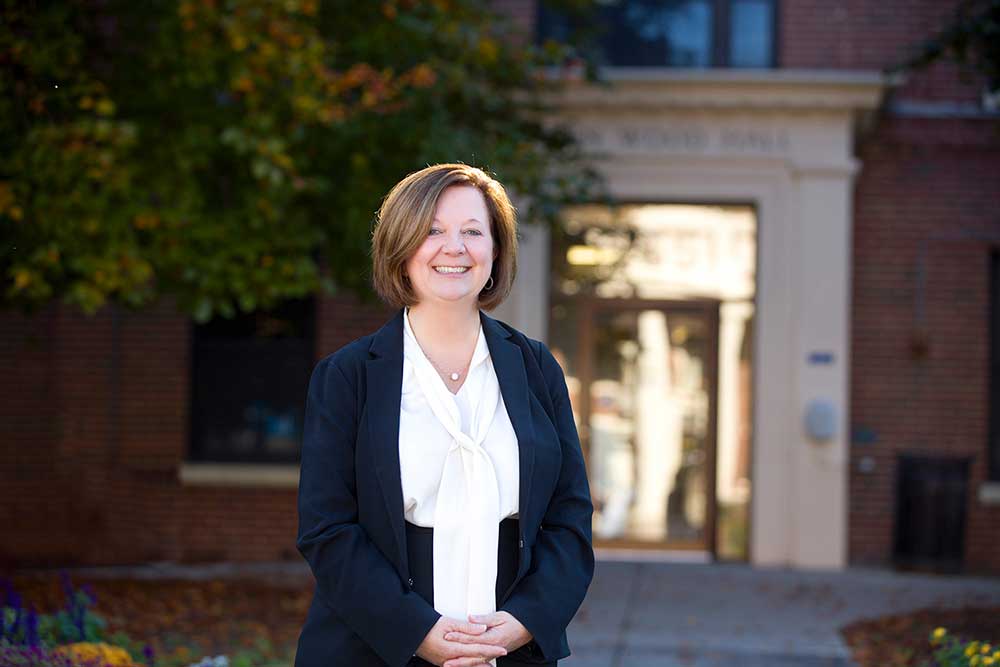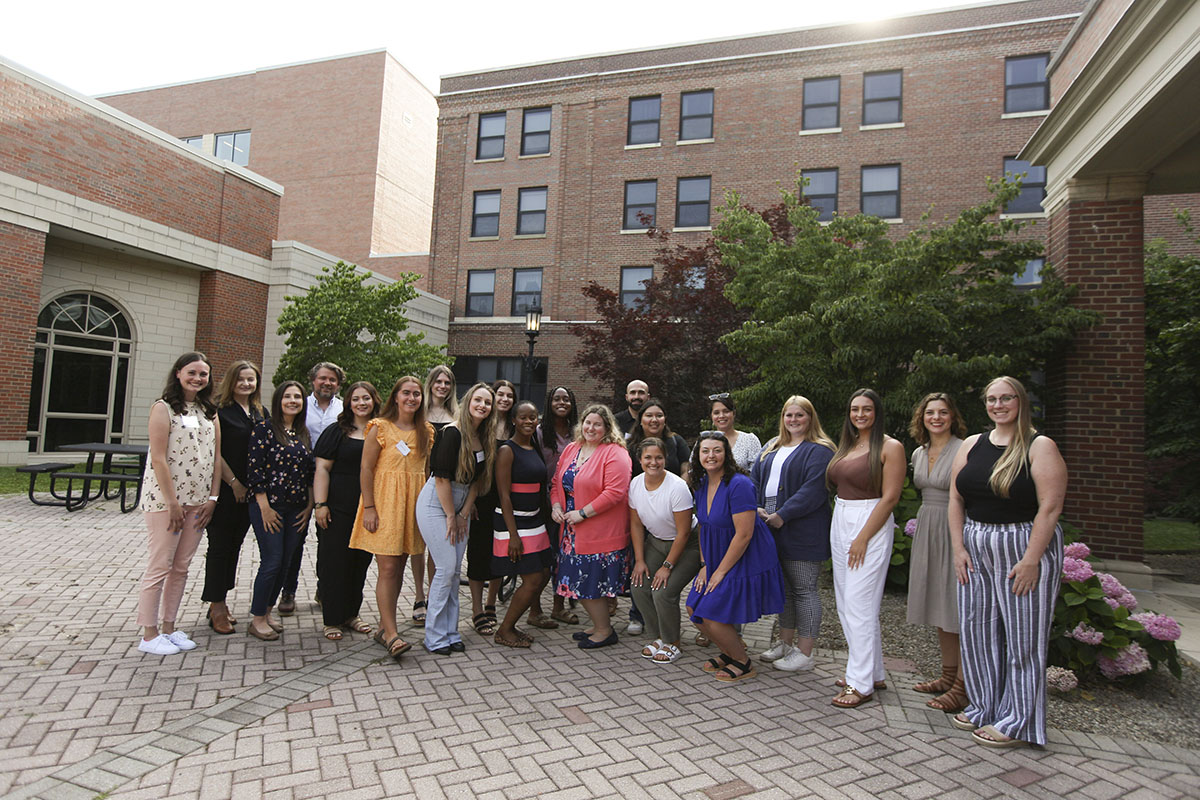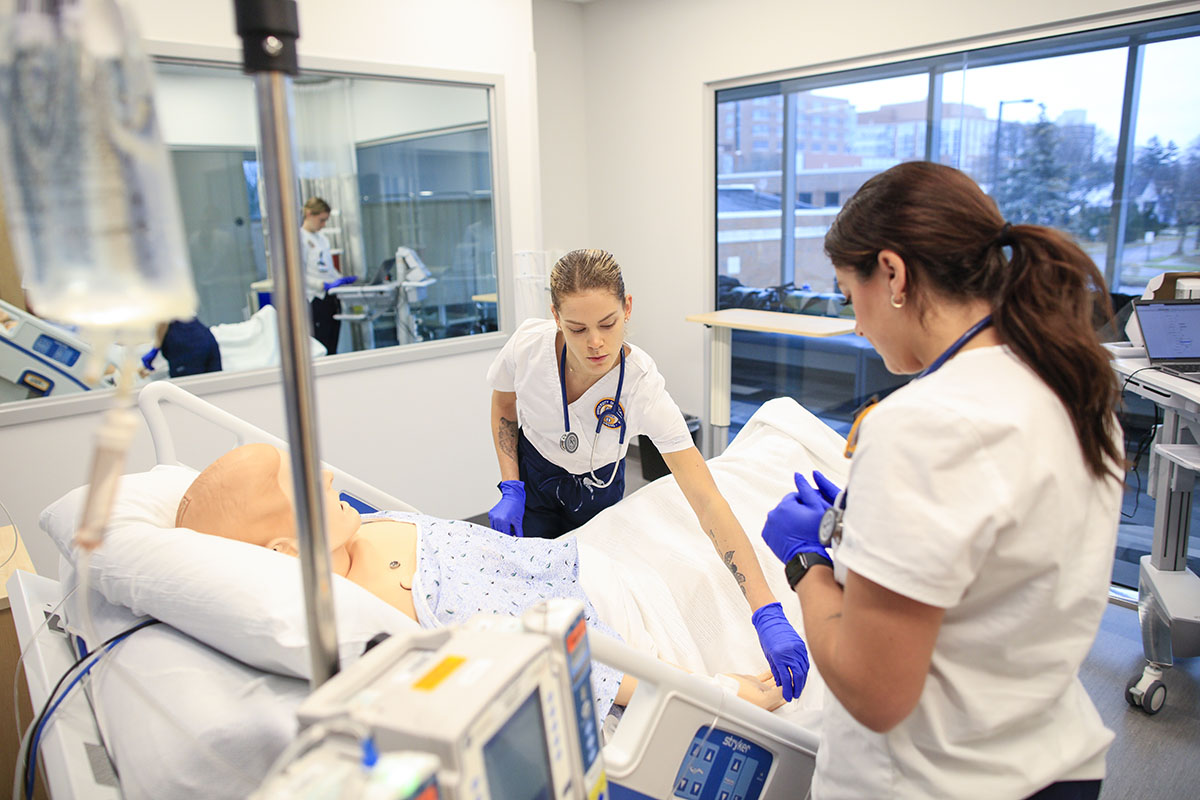For 100 years, the University of Rochester School of Nursing has been a pioneering force in the science and practice of nursing. Among our founders and faculty are giants of nursing education and research. As an institution, we are proud to have contributed significantly to the evolution and elevation of professional nursing over the past century, and look ahead to an exciting future.
Unification model
 The Unification Model directs nursing education, research, and practice. Unification is not only a philosophical approach but also an organizational structure that operationalizes the interdependence among education, research and practice.
The Unification Model directs nursing education, research, and practice. Unification is not only a philosophical approach but also an organizational structure that operationalizes the interdependence among education, research and practice.
Education empowers nurses with knowledge, attitudes, and skills for leadership in professional practice and research. Research develops nursing knowledge to strengthen education and promote evidence-based practice. The practice of nursing is care delivery that promotes continued excellence through the generation of new research questions and the enrichment of the educational experience.
The ongoing interaction of education, research, and practice benefits the consumer by ensuring quality nursing care.
Visionary leadership
From the beginning, the University of Rochester’s nursing programs were led by forward-thinking and ambitious educators. In 1925, Helen Wood, RN, AB, became the first superintendent of the School of Nursing, founded concurrently with Strong Memorial Hospital and the School of Medicine and Dentistry. Wood was a member of the influential Winslow-Goldmark committee that brought nursing training out of hospitals and into colleges and universities. At the time, Rochester was among only a handful of universities engaged in nursing education.
Wood was an early and passionate advocate for the integration of nursing education, clinical practice, and scientific research. She established the role of the director as a joint position overseeing the nursing school, nursing service at Strong Memorial Hospital, and all research activities.
In 1972, Loretta Ford, RN, EdD, became the inaugural dean of the newly independent School of Nursing. An accomplished clinician and researcher who helped pioneer the field of nurse practitioner, Ford not only raised the national profile of Rochester, but influenced the entire study and practice of nursing in America. She was inducted into the National Women’s Hall of Fame in 2011.
Advancing graduate study in nursing
The School of Nursing offered its first master’s degree in nursing education in 1951. In the following decades, Rochester’s graduate nursing faculty also played important roles in developing advanced clinical nursing specialties. Josephine Craytor, RN, MS, FAAN, is credited with pioneering the role of the nurse oncologist and developing master’s-level curriculum to educate University of Rochester nurses in this new field. Rochester was also an early leader in the nurse practitioner movement and developed the acute care nurse practitioner role within the Surgical Nursing Service at the UR Medical Center.
In 2002, the UR School of Nursing shifted from a traditional undergraduate program to instead offer accelerated programs for students with a non-nursing bachelor’s degree. And, in 2007, the school created the Doctor of Nursing Practice (DNP) Program to meet the changing demands of the nation’s complex health care environment.
Today, with an enrollment of more than 650 students across its academic programs, the school is focused on developing exceptional, team-oriented health care providers, researchers, educators, clinical leaders and innovators, who continually strive to improve health care provision.
The school’s high quality programs—offered across the continuum of learning, from baccalaureate through doctoral education—demonstrate its commitment to preparing a new generation of nurses to meet the growing needs of patients and families in an increasingly complex health care environment.


